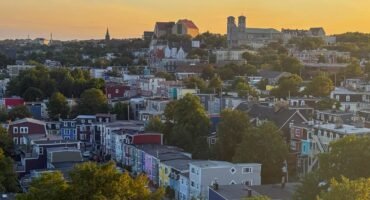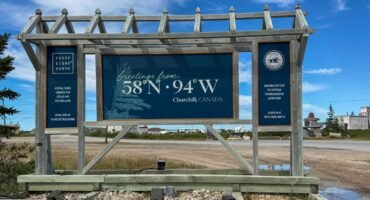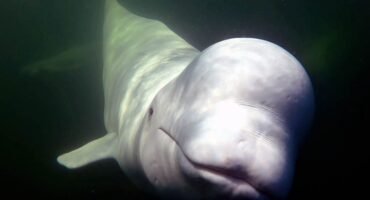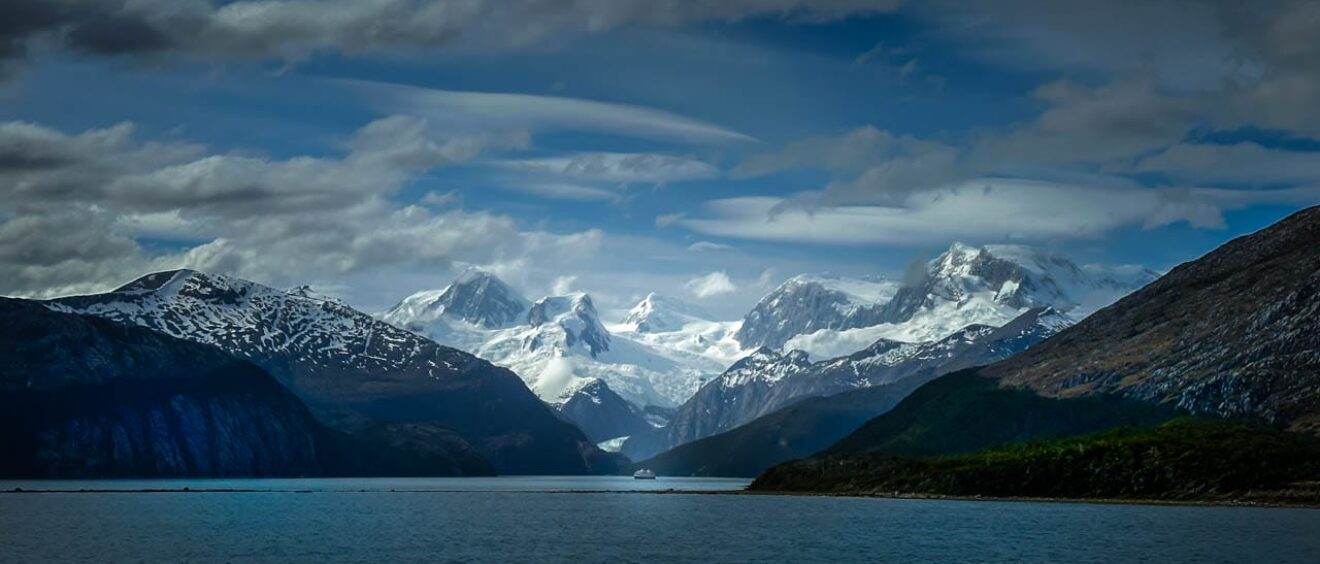
Traveling from Punta Arenas to Ushuaia on the Ventus Australis
How to get from Torres del Paine to Ushuaia
With a week to spare before our expedition, I initially had the ambitious idea of driving from Torres del Paine to Ushuaia. We had five days and according to Google Maps, it was 12 hours of driving (not including a ferry crossing. Taking a rental car across the Chile-Argentina border turned out to be both complicated and expensive. After some research, I found a much more scenic option—a four-night cruise from Punta Arenas, Chile, to Ushuaia, Argentina on the Ventus Australis. So, as unconventional as it sounds, we embarked on a cruise… before our other cruise.
We left EcoCamp Patagonia early, after breakfast, and hit the road by 6:30 a.m., passing numerous buses ferrying people into Torres del Paine. After refueling in Puerto Natales, we reached Punta Arenas by 11 a.m.

Navigating through the city’s traffic was a bit overwhelming, but we made it to the port and dropped off our bags. Despite arriving before the official check-in time, we convinced the staff to let us in early.


After dropping off our rental car, we grabbed a coffee and a second breakfast at a café by the water. By 1 p.m., we returned to the port for check-in, handed over our passports, and tagged our bags. After some time wandering around town in search of a pharmacy (thankfully, my pantomime skills worked for chapstick and toothpaste), we headed back to the port to board the Ventus Australis. Built in 2017, the ship was specifically designed to navigate the Chilean fjords. The Ventus Australis is approximately 89 meters (292 feet) long and has a capacity of 200 passengers. We lucked out and it was about half full. Every deck featured comfortable lounges, including the Darwin Lounge on deck 5, which boasted floor-to-ceiling windows on both sides for panoramic views.


Our cabin was an AA on deck 3. It had floor-to-ceiling window, a king bed, and a cozy chair, plus a small closet for our gear. Not the best photo, but you get the idea.

That evening, after a safety briefing, we set sail at 8 p.m.

Dinner was served by two exceptionally attentive waiters who went out of their way to accommodate my food allergies. We were assigned a dedicated table and waiter for the entire cruise—and luckily, we didn’t have to share it with another couple (which can either be amazing or downright awkward). As with the eco camp, I wasn’t expecting much from the food but it was outstanding.
Day 1: Ainsworth Bay Hike and Penguin Watching at Tuckers Islets
We sailed 90 nautical miles overnight, arriving at Ainsworth Bay in the morning. Early riser coffee in the Sky Lounge was lively with chatter, and after breakfast, we chose our excursions. Andy tackled the more challenging moraine hike, while I opted for the forest walk. My hike was a gentle 3 km stroll through the lush landscape, filled with fascinating tidbits about the local flora and fauna, from lichen and moss to beavers and “devil strawberries” (“don’t eat, diahhrea” <– the comma is as important as the warning).


Meanwhile, Andy had stunning views from the moraine summit.



After lunch, the ship moved to Tucker Islets, where we went on a zodiac tour of a Magellanic penguin colony. Watching the penguins build nests along the shore, while spotting cormorant chicks and dolphins, was a definite highlight—though shooting photos from the bouncing zodiac proved a bit tricky.
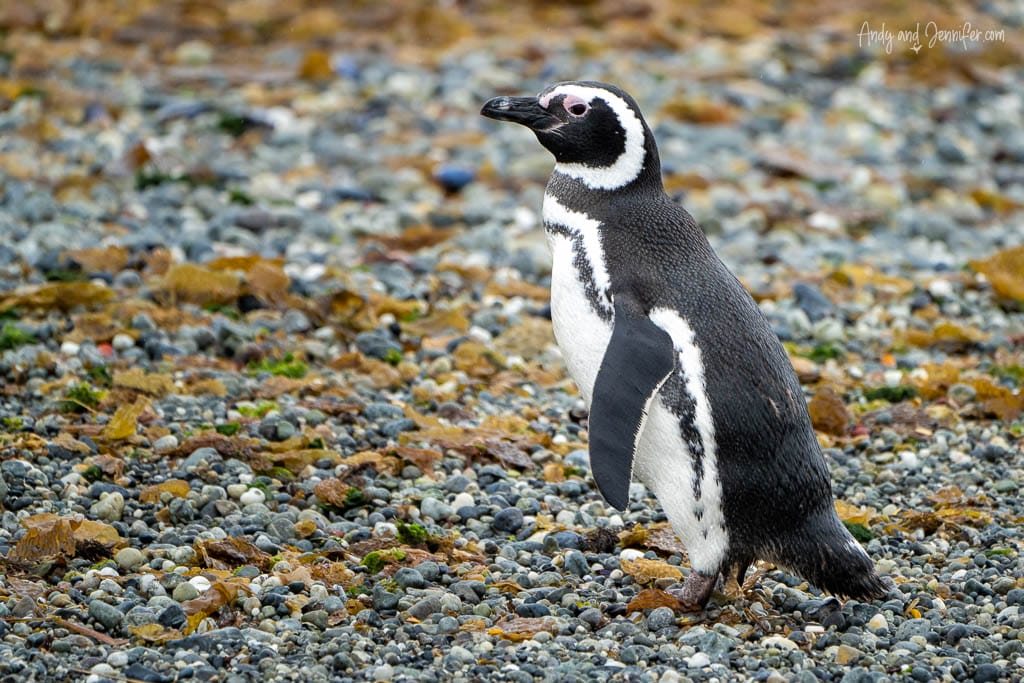

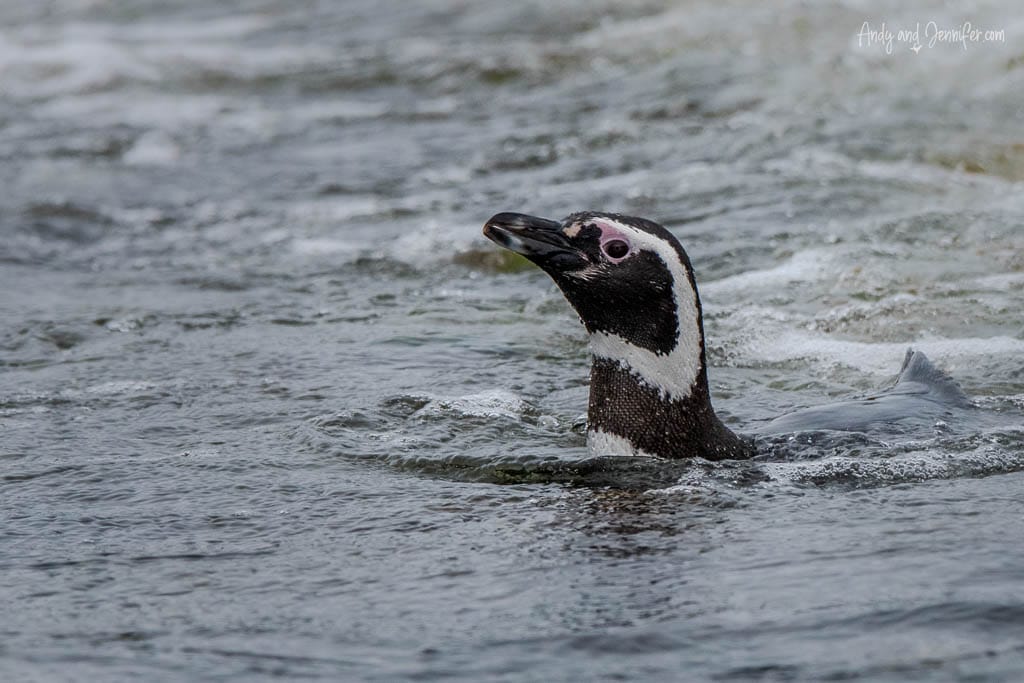

In addition to the Magellanic penguins, we saw this family of upland geese. The white bird is a female, and the darker one with distinct black and white stripes is a male.

We also spotted this Chimango Caracara.

We were escorted back to the ship by several Peale’s dolphins.

Day 2: Pia Glacier Hike and Glacier Alley Booze Cruise
We sailed through the night again, covering 208 nautical miles to Pia Glacier. The morning rain didn’t dampen our spirits, and by the time we arrived, the clouds started to clear. We opted for the shorter, less muddy hike, which still involved a steep climb up slippery rocks. Ropes helped us along the way, and we were rewarded with the sight of glaciers calving into the bay below—an awe-inspiring moment.





Back on the ship, we enjoyed hot chocolate (with an optional splash of whiskey) before entering Glacier Alley—a scenic stretch where we sailed past glaciers named after European countries. Each glacier was celebrated with its own themed drink and snack: German beer and sausages, French champagne and cheese, Italian wine, and fritters. It felt like a mini “around the world” booze cruise, all set against breathtaking views of the glaciers.
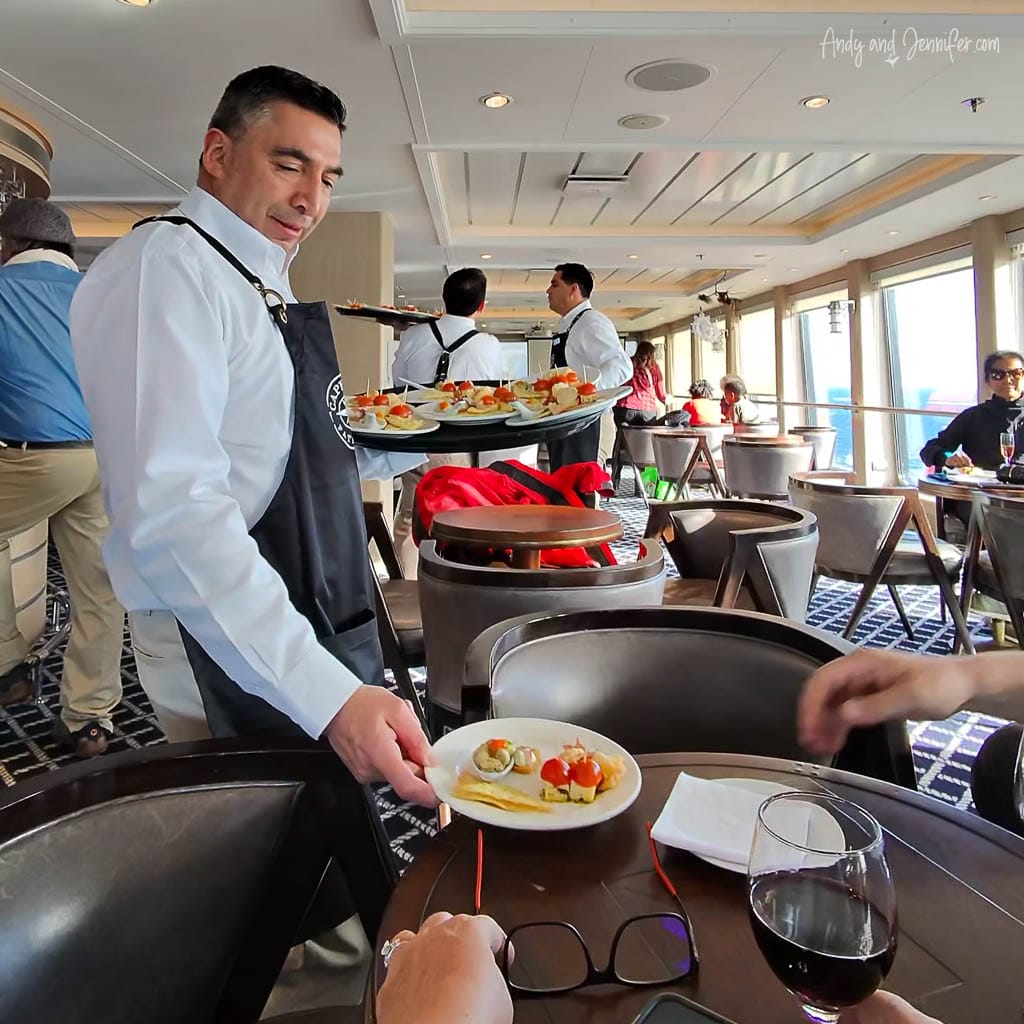


Day 3: Cape Horn and Wulaia Bay Hike
Christmas Day brought us to Cape Horn, but with the rain and wind picking up, I decided to enjoy the view from the comfort of the ship. Andy suited up for the excursion but ultimately decided to skip it as well, after watching soaked zodiacs struggle through the rough waters.
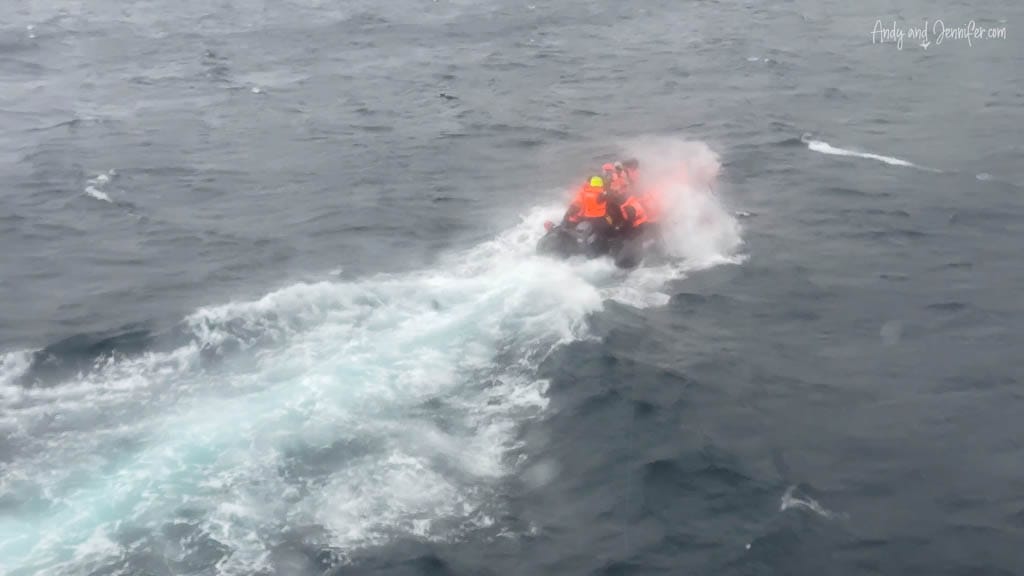


That afternoon, we sailed to Wulaia Bay, an area rich in indigenous history. We had the choice of three hikes: the summit, the forest, or a beach walk. We opted for the forest hike, a moderate 4 km trek with some steep sections. The views at the top were stunning, but the intense wind had us descending quickly. We barely made it back to the ship before the captain, eager to beat the worsening weather, whisked us away.

Day 4: Disembarking in Ushuaia, Argentina
We docked in Ushuaia early the next morning, concluding our journey through the Chilean fjords. Disembarkation was a bit chaotic as we weren’t entirely sure which group to join, so we ended up just leaving on our own and walking from the pier. We found a taxi after a few minutes, and he eagerly accepted $5 USD to take us to the Hotel Las Hayas.

Reflections
We were pleasantly surprised by this cruise through the Chilean Fjords—perhaps because our only expectation was to get from Punta Arenas to Ushuaia. It turned out to be the perfect way to relax and soak in Patagonia’s raw beauty before our next big expedition. It gave us the ideal chance to decompress and savour Patagonia’s tranquility before embarking on the intense adventure that awaited us.
We’re Andy and Jennifer—two former corporate executives who chose long ago to prioritise experiences over stuff while pursuing our passions for travel and photography. From the Arctic to Antarctica, and most places in between, we’ve captured the world through our lenses and love sharing those stories. Our careers gave us the means, but our purpose is inspiring others to explore and helping people create images they’re proud of.










